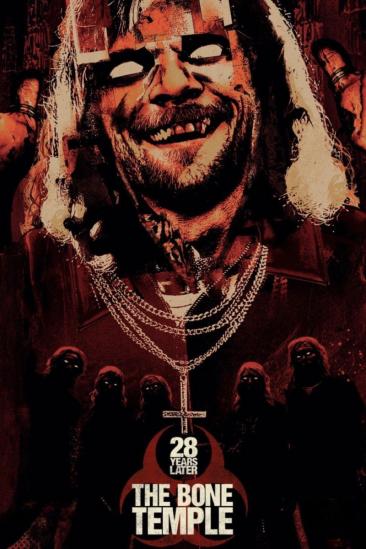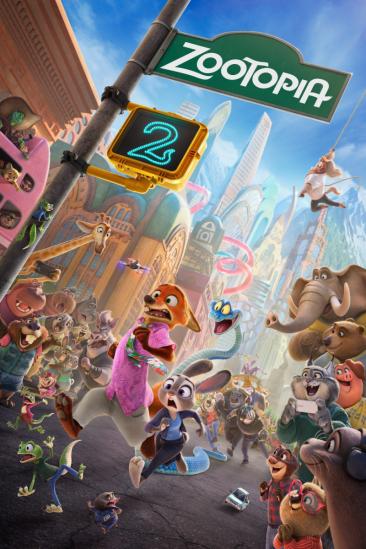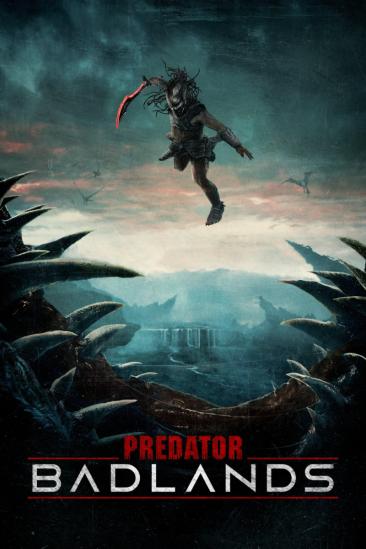Heading Underground: A Deeper Look at Skyfall and Spectre.
By Barnaby Turner | Leave a Comment | Published 8 years ago

Sam Mendes, one of my favourite directors working today, is a man whose films generally pack a whole lot more than first meets the eye, and they consequently leave lots of room for different interpretations. Nowhere is that more so the case than where his two James Bond films are concerned, and being the huge James Bond fan that I am, I've spent years watching and picking these films apart to find new and interesting things below the awesome surface. Skyfall in particular is a real masterpiece when you look at it, and even Spectre (2015) is a very worthy and enjoyable sequel that continues to explore some of Skyfall's ideas.
So after countless re-watches and re-evaluations of what it all means to me, I figured it would be a good idea to share some of those interpretations with you. Now remember, good art is all about interpretation, so my take may differ greatly from yours, but I'm aiming to scratch below the surface and show you that a lot more lies beneath, and once you've read my feeling on it all, you can share yours in the comments too.
For now though, are you paying attention? Well, that's certainly the question Mendes asks as an out-of-focus Bond walks down a corridor and into the light as Skyfall (2012) opens with a blast of Bond chords from Thomas Newman. Oh yes people there’s a whole lot more here than may first meet the eye...

SKYFALL
So firstly, and perhaps most significantly, what makes Skyfall stand out is that our literal villain isn't the only bad guy in the game - here it's just as much the authorities and western governments of MI6. Yes just in the awesome opening sequence alone, immediate questions are raised - Bond is ordered not to help a dying man, we learn that there are NATO double-agents, there's a rather distinct lack of care for who gets affected in the area, and at the end, we even see MI6 potentially sacrifice their own agent to protect itself.
Setting that up is virtually the entire purpose of the opening sequence, and thereafter there are plenty of metaphorical and visual references to the likes of Orson Welles' “The Lady from Shanghai (1947)," "Citizen Kane (1941)," and "The Third Man (1950)" throughout; a man who's films hardly reflect an all-singing and all-dancing view of western authority. Also, there's many points where the authorities act underground here - both representing a kind of suspicious secrecy, as well as bringing connotations of the (at the time rather recent) London Underground de Menezes murder, and what mistakes authorities can make 'under our noses.'
However, by far the biggest representation of capitalist authority here is M herself - a character that Skyfall focuses on an awful lot. The usual 'hero' of the 007 franchise? Hmm, funnily enough Mendes has other ideas.

Yes in fact, when you think about it, M is the reason for everything that 'goes wrong' for virtually everyone in Skyfall. For a start, Silva (the more blatant 'villain' who steals the NATO agent data - more on him later) is created by her betrayal; she thus indirectly causes the explosion at the Headquarters, whilst she also leaves Bond inactive for months after her cold and reactionary decision making, only to then send him on a mission he's no longer fit for that puts him under intense emotional strain and further risk to life.
Not great ideas, and it's clear to see even at this level that Mendes is hinting that our real-world political problems (specifically, but by no means exclusively, Britain's) might not be created entirely by external threats after all. It's not all delivered that blankly though, as M is also given plenty of development and a chance to further explore the real-world significance of her metaphors.
This is mostly the case in the enquiry scene where Gareth Mallory forces M to hold herself to the people she's clearly forgotten she's protecting (she even scorns the idea of civilian oversight early on in the film). In her attempt at defence though, M states that their enemies are unknown and live 'in the shadows,' yet she fails to realise that they're actually created by MI6's own past mistakes. M is effectively blind and self-centred, just like a government only thinking of its own national interests, and these traits are characterised right up to her dying moments later in the film.
Further, more external, parallels can also be drawn to this enquiry too; including the trial of Fritz Lang’s "M," but perhaps what sums up M and this film's representation of authorities most is when we see her read Tennyson's Ulysses poem. Now after considering it myself I thought this was a blind patriotic piece read by heart to symbolise her kind of hypnotic following of a code, and her inability to give up and step down (which it certainly is), but after further research there's apparently much consideration in the English community for it being a poem about 'knowledge in excess' as well. And that brings me rather ironically onto my next point about another crucial character in Skyfall.

Silva - the character M seemingly references regarding 'knowledge in excess' - is indeed the one with the greater perceptive knowledge, and in turn, Mendes uses him to embody the polar opposite to M's westernised authority.
First and foremost though, he's an ex-agent who's seen the light, and after his torture at the hands of the Chinese he's realised what the system he used to be a part of is really like, and he wants to get back at it. However, whilst (as I've discussed) he's not the only villain here in my opinion, the way Silva acts does also seem to emulate the stereotypes of a strict communist regime, with his island, army, sex slave and warship. This is just another in a sea of examples regarding the lack of black-and-white in this film, but whilst we'll delve more into the goods-and-bads of these attitudes and his knowledge later, it's at least clear that he juxtaposes M's inability to step back, and her patriotic western approach.
But what about Bond? Well, whilst he may similarly come across as a blindly patriotic individual with little ability to be perceptive, I'd actually argue he's mostly played as a victim in Skyfall. When you think about it, he's entirely at the mercy of M and her decisions, and whilst he's given the chance to see MI6 for all their wrongs in his 'Chinese torture' equivalent whilst he's "enjoying death," after some initial scepticism, he eventually returns to the organisation that betrayed and almost murdered him - completely unlike Silva did. Why? Well, to quote the man himself; "good question," but it's really because he has nothing else to follow, and it's extremely hard to walk away and make his own path (as Silva shows) so he stays blind.
In some ways then, Bond is a darker, supressed version of our more enlightened villain, and in that sense I find it rather poetic that the person who's usually our hero is now the victim, as this is who the audience sees the story through and is who we relate to. Are we all victims of the system too then? Do we even realise Bond is a victim?
Well the beauty of Skyfall is that the film challenges us to decode these things, as Silva is, at least in terms of the expected formula, the simple "villain," whilst Bond is the "hero." Even Silva's hesitations in killing M, whilst making sense as the literal representation of labour-ishly abandoning all acceptance of the system he used to be a part of, also give us an opportunity to re-consider our pre-conceptions and realise that Silva isn't necessarily the only villain after all.

Also though, if the real-world parallels weren't already becoming clear as far as Bond's victimisation and submission to authority are concerned; there's one more thing that sums it all up rather neatly - the story about the rats. Yes, here we hear of 'lesser' animals being conditioned into behaving in a certain way by more powerful ones. Silva is of course referring to himself and Bond as rats (Bond, and to some extent a part of Silva, operate under M's authority), but it's not hard to take the analogy a step further and imagine Silva is using the analogy to describe his wider view of society and authority. On an even broader level though, the story is also about decadence into dystopia, and it could consequently be argued that the piece sums up the entire film. Indeed Bond states at the dystopic ending that he is the 'last rat standing,' but what does that really mean? Well, the ending of Skyfall is just as interesting as every part of the film, but I would argue it's a 'win' for both Bond and Silva.
Yes firstly, Silva's aim was of course to get revenge on M and her corrupt organisation (which he manages to some degree), but it was also arguably to show Bond all of M's wrongs and problems. Whilst Bond generally refused and continued on blind throughout the rest of the film, the fact he's 'the last rat standing' at the end, and the fact he's rid of his controlling influence in M does suggest that Silva's almost achieved in that regard too, and that Bond has come out on top as a result. But whilst he's stepped back and moved forward by the end, we all know that Bond doesn't truly leave his corrupt espionage world behind either, and he instead returns to a new MI6 back in London - an organisation that actually seems to have gone back in time. And oh how neatly that brings me on to my next big point about Skyfall. Let’s talk about time people.

Now there's a part of me that can see Skyfall as a celebration of the idea of going back in time, but in my eyes there's a little more to it than that and part of it seems to scorn the idea of nostalgia too.
Firstly, Skyfall uses its own franchise call-backs to show characters (and rather beautifully, the audience) clinging to nostalgic memories. Bond in particular is searching for breadcrumbs (soundtrack reference intended) of the good bits of his past all the time, just as many of us Bond fans are searching for the good bits from the classics. In that sense though, it's also clear that Bond and M feel far more comfortable with the 'old ways' and are clinging on to the past in a world that's moving forwards around them.
However, just as Mendes so subtly underlies each franchise trope with a darker significance in the film, Bond and M equally seem very reluctant to acknowledge the more troubling bits of their past, and instead block them out entirely. For example M writes a startlingly brief and cold obituary to Bond, Bond constantly dismisses his childhood traumas and more recent failings, M threatens to strike Silva's name off the MI6 records, and more metaphorically - Bond fails to recognise the falling imperial warship in the Turner painting (which clearly represents M's diminishing fate) as anything more than a 'bloody big ship.' In typical Mendes-metaphor style too, their enemies are supposedly "shadows," that they can't see behind them, and Bond and Moneypenny even shatter their wing-mirrors at the beginning of the film; proceeding forth with little consideration of any trauma that's just unfolded.
In summary then, the film's leads do indeed look back with fuzzy nostalgia, but they also initially do so with very little consideration for all their past mistakes or problems either. Crucially though, this isn't celebrated, and I actually feel that it's portrayed as a bad thing as people's forgotten problems frequently come back to bite here - just as all of M's buried mistakes and blind inability to reflect cause all these problems, and arguably lead to her demise.
However, the film doesn't just leave it there, as the ending obviously sees Bond literally travel back in time to his childhood home to win. Surely though, if he 'wins' as I said earlier, this means we're eventually seeing a celebration of the concept of going back in time? Well this is where I think it goes a little deeper than that, as I actually believe that because Bond is delving into some darker personal history, the ending is more so a celebration of embracing all aspects of the past - good and bad - so that we can learn from it and move forward rather than bury it and carry on as normal.
Of course in the end, after he embraces his past, Bond is somewhat 'back' for the first time in his trilogy, and it's what he does with that in Spectre that says even more about Mendes' attitudes and exploration around how we move on with our pasts and how possible change is. For now though, Bond is in a place where he's begun embracing all that, which has enabled him to loosen himself slightly from M's suppression. That may not have been easy, but it's a rather beautiful and very thought-provoking arc indeed, as it's one that I'm sure any nostalgic movie-goer can invest in on some level.

And actually, that leads me to my biggest point of admiration for the whole of Skyfall itself: the way it interacts with its viewer. Yes, the very concept of this story is one that questions and intrigues, yet at the same time, it doesn't have to at all. In a way it seems to ask rather directly whether you'll follow the actions of Bond, Silva and M and realise where the real wrongs and rights are, or whether you'll simply follow the formula and accept Silva as the only villain, the un-checked MI6 as the 'good guys,' and Bond as the straight-up hero.
The key thing is that both are entertaining routes to a genuinely enjoyable and well-made movie either way, but much like in real life, Mendes is asking whether we can look beyond what we believe to be the case and question the system.
In other words then, there is almost a surface film, and a deeper film going on here - and when you consider how much each of them are equally excellent, it becomes clear what an impressive feat Mendes has pulled off. However, he (unsurprisingly) doesn't portray things as blankly as that either, and it almost feels like he's enjoying testing the willingness of the Bond audience to look deeper, just as Silva challenges Bond to. After all the film is very self-contained in its exploration of ideas, which helps engage, and almost distracts the audience from the deeper issues at hand.
In that sense, Skyfall also seems to ask whether it's better and more natural to accept the easier, less probing option when taking a stance on what to believe, as the surface story is equally very enjoyable and seems extremely comfortable relishing in its great set-pieces and Bond-isms. So, is looking beyond what's widely accepted a route to happiness? Or is it better to stay blind? Well, que Spectre Mr Mendes, I always thought you'd return.

SPECTRE
Now what's perhaps most significant about this sequel is how clearly it paints everything in comparison to its predecessor, and that's particularly the case where our new villain is concerned. No longer are they an anti-authority terrorist - instead here Spectre is very clearly painted as an illuminati-esque, private organisation in control of everyone and everything. In a way this is what the classic group always was, but Spectre's representation here and the timely update they get make the intended connotations as clear as day. For a start, the old tentacle logo and the opening sequence leave little room for loose interpretation, but their information sharing plan, and the methods with which they try to achieve this are equally typical private-elite type aims.
Really then, the question this poses is why Mendes suddenly chooses to expose this so clearly. Well, I think the answer mostly lies with Bond himself - a man who's no longer such a 'blind rat' under the submissive reign of MI6, and someone who's been shown the system for some of its wrongs and is looking to get back at it. Remind you of anyone? Yep, I believe Bond's journey in Spectre, whether intentionally or not, is one that massively mirrors that of Mr Silva in Skyfall, and that's unsurprisingly a very interesting change to see indeed.
Now of course, there are still big differences, but much like Silva he's still finding it hard to move on from M, and he's now on a difficult personal mission to delve deeper into his past, and later to take down Spectre. In some ways then, the audience are no longer a victim of a journey against the system; they're now a very obvious participant of one, and this allows Mendes to further explore the questions posed by Skyfall.

So how does Bond go about his mission? Well, Just like Silva, he's finding it hard to move away from the system and go at it on his own. There's this constant idea presented to him that Spectre are bigger than he possibly can imagine, and when he finally meets them, the task of taking them down all by himself is indeed impossibly daunting, especially considering how much he's still a part of the authorities. MI6, whilst arguably changed for the better, are hardly the help he needs either, as they're still forced to cooperate with Spectre's new ideas, so Bond is forced to carry on virtually alone.
But, to some extent like Silva in Skyfall, Bond never really succeeds in taking down Spectre and holding them accountable, which is arguably the most crucial part of the film. Indeed whilst it is a movie that exposes the elite in a negative light and follows Bond (and to some extent Mallory and his team) against them, it's also one that suggests they're kind of unbeatable.
Yes, at the end we learn that Spectre have truly been the "author of all [Bond's] pain," where it's confirmed that he and the authorities have somewhat been a pawn of Spectre from the beginning. It's fairly clear by this point though as Mendes naturally filled this film with narrative nods that include the beautiful title sequence where Bond is tangled in the arms of Spectre's octopus, and the 'Smart Blood' that Bond is injected with. So whilst it's not hard to draw real-world parallels where all of that is concerned, the true significance comes when we take a look at the authorities' reaction and failure in dealing with this late realisation. At the final showdown on Westminster Bridge of course, MI6 boss Mallory leaves Spectre's Oberhauser for arrest - under the "Special Measures Act of 2001, on behalf of Her Majesty's Government."
For me this is brilliant, as it's frequently been pointed out as a pretty clear reference to an act rushed through British parliament right after 9/11 - The 2001 Anti-terrorism, Crime and Security Act - a set of laws that largely disregarded human rights in pursuit of surveillance and sharing information. See the irony? Spectre haven't lost at all; Oberhauser is taken in under a law that similar organisations (at least under the message of this film) likely had a hand in writing. According to Spectre then, the actions of the elite infiltrate everything everywhere, and even if we think we're against them, we really can't be.

So all in all, the second of Mendes' Bond films may not be as in-depth and interesting as Skyfall, but it does paint things much more clearly and aims to bring the private elite into a commonly accepted negative light. But where does this leave Bond? Well after literally walking through his past at the end and realising the frightening extent of what Spectre are doing, he now in some ways feels at peace enough to go off with Madeleine (the girl he picked up on the way) and live his own life. But second of all, you could argue that's the only way out for him as he's now fully aware of the corruption and issues that the system he's a part of holds, and he's back to square one because it's all too difficult.
Indeed the task of truly taking down the system seems an impossible one now, and by the end of this film we even learn that the anti-authority Silva in fact became a part of something bigger and even more corrupt in his drive to leave it all behind. The end of Spectre then, and the end of Mendes' work on Bond, seems to suggest that living and accepting it, or running away from it all, is the only real route to happiness, as taking it on is pretty much impossible.

So that's my analysis of two of the best James Bond films - a unique, thematically significant and beautifully original set of works by one of the best directors of our time. Whoever has to pick up the torch after this has a very difficult task on their hands, but for now we can just enjoy the excellence of these two movies.
What do you think of my analysis? Do you agree or disagree with any of my points? Let me know in the comments folks, I'd love to hear from you all.









Post a New Comment
Sign In to CommentComments